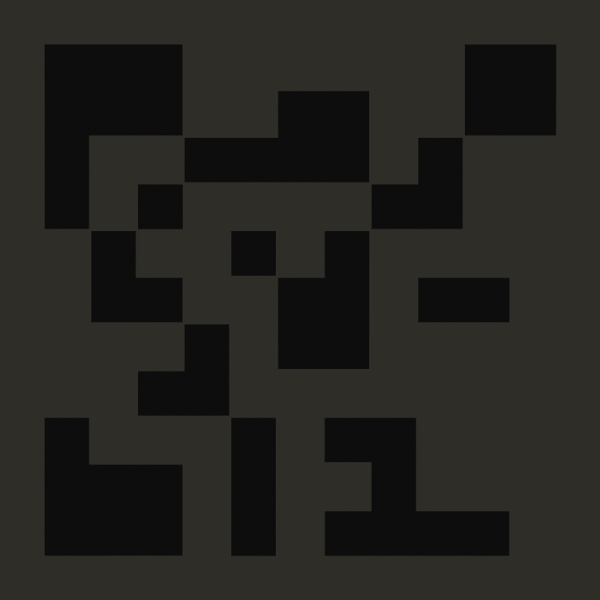Autechre have never been minimalists. From their achingly memorable IDM beginnings–the Anti and Garbage EPs, Amber and Incunabula–to their more deliriously abstract stuff like Confield and 2005’s Untilted, Rob Brown and Sean Booth have always forged their own paths and traveled down them with single-minded enthusiasm–accessibility, “danceability,” or familiarity be damned. It’s this very quality that made the Manchester duo’s last studio album, Oversteps, such a revelation: it came across as both a continued experimentation with the tropes of downtempo, IDM, and electronica they’d been toying with for almost two decades as well as a return to their start, embracing warmth and melody in a way they hadn’t since before Tri Repetae back in 1995. In other words, Oversteps felt like a summation of Autechre’s oeuvre thus far without sacrificing the sonic adventurousness the duo had reveled in since, well, Trip Repetae. They’d come full circle, and even given their infamously capricious discography, it seemed especially difficult to predict where Brown and Booth would go next.
Three years later, we have our answer in the form of Exai, a tangled and glorious mess of aggressive glitches and clipped synths and stuttering beats and hints, shadows, and fragments of tunefulness. At two hours long, it almost seems designed to alienate as many fans as possible. There’s no single entry point besides the beginning, no “Surripere” or “Corc” or “Cfern” on which to hang one’s coat before exploring the labyrinthine circuitry of Autechre’s mischievous hardware. It’s not that every track here is connected, necessarily; rather, it’s that every track is so different that one will inevitably miss out by not experiencing all of them at once. Exai, then, is greater than the sum of its myriad parts.
But oh, are its parts excellent. “Fleure” opens the set with a dizzying array of tinny, fractured breakbeats, almost like Radiohead’s “Pulk/Pull Revolving Doors” being sped up and played in reverse. Analog (or faux-analog) tones seem to be just out of reach, as does what sounds like an echo of an echo of a steel drum. There’s a lot going on here, more than is evident upon a first listen; still, “Fleure” places Exai squarely in the “glitch” category, a classification that provides a thematic paradigm within which the remainder of the album can transmute itself. Case in point: second track “irlite (get 0)” at once follows and alters this pattern. Here, the drums are placed a bit further down in the mix, and the individual stabs of melody from “Fleure” have evolved into brief, decaying phrases. Halfway through, cinematic flourishes appear like flashlights faintly shining through a collapsed tunnel, but even these are quickly broken down and dissolved; the machine that we hear is dying, and its last breaths contain a level of pathos appropriate for the digital age. (See also: the ghostly sieved choir lurking in the background of “bladelores.”)
Indeed, industrial decay is another theme Autechre explore on this release, conjuring up images of old machines grinding to a standstill, modems dying, circuits frying, and eulogies spelled out in binary code. Brown and Booth aren’t just hitting metaphorical on/off switches; no, they slowly draw the life out of their innumerable gadgets, and part of the joy of Exai is mentally reverse-engineering the songs we imagine these noises once were, or could have been. This might sound like Confield redux, but Autechre make more overt gestures toward IDM and bass music, sculpting mechanical decay into tracks with enough musical merit to justify their length. Only in the context of this rather dystopian landscape could “jatevee C” be said to appear sleek or shimmering, its simple melody partially obscured by another lovingly arranged percussive clusterfuck that seems to hammer the Incunabula-esque lullaby into computerized submission. They beat it to a bloody pulp, in fact, and spare no mercy in the process.
Thus, Exai is not the sound of industrial decay as an observed fact; rather, there’s an undercurrent of violence to these tracks that make the listener accessories to a kind of sonic murder. “T ess xi” starts off soothing and placid; needless to say, it’s slowly but surely eaten alive, its downward chord progression mirrored in the gradual distortion and disintegration of its tonal purity. The repetition of the central melody we hear just after the four-minute-mark is but a shell of its former self. If “post-IDM” is a thing (and I hesitate to call it a thing, since it’s difficult to not sound like a tool while doing so) then the creeping, anxious deconstruction of digital forms we hear on Exai might constitute its liturgy.
I believe that’s the point here, Autechre’s unrefinement of the decline, though it’s this precise quality that might turn some listeners off. As I said, Autechre are especially merciless, and if your patience is tried by, for instance, the ping-ponged corpse of Nintendo bleeps on “vekoS” getting almost seven minutes to air out–or the malformed ode to trip-hop that is “cloudline,” or the way “tuinorizn” investigates the inflexibility of tempo and the rhythmic breathing room it paradoxically allows–then this album as a whole might be a slog for you to get through. I can’t begrudge a listener for feeling that way; after all, few musical missteps are more disappointing than a good central idea overstuffed with studio tomfoolery and extended long past its welcome.
But I for one find myself enjoying Exai‘s aural atrophy. I love the way it weaves through filters and layers; I love the way it implies melody instead of simply presenting it on a veritable silver platter; I especially love the way it takes its time while doing these things, paying respect to each squelch and sine wave it so eagerly decimates. As I said before, Autechre have never been minimalists, and they prove that here with such confidence that the industrial death it posits becomes an inevitability: everything dies, even things that were never “alive” in the first place, and there’s no reason to rush our goodbyes.

